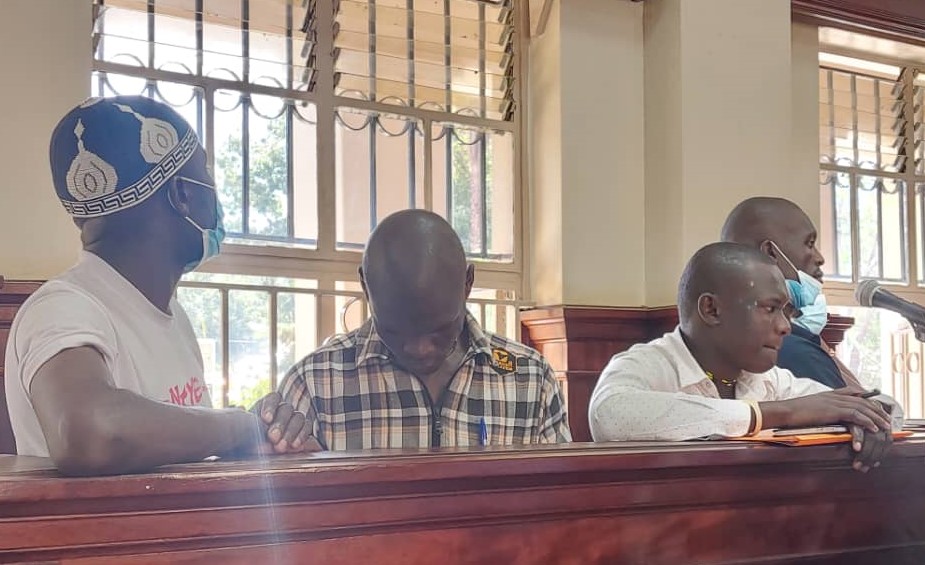By Kerry Howard Mwesigwa
The courtroom proceedings in the Nagirinya murder case seem to have twists and turns every defence witness is called on the stand to tell their story. Lubega Johnson, one of the accused, testified about the horrifying events surrounding his arrest and alleged torture. However, amidst the shocking torture revelations, a controversy arose when Lubega was found reading verbatim from a prepared document during his testimony.
Lubega Johnson, a 23-year-old resident of Bulenga, Wakiso, passionately denied any involvement in the crimes he was accused of. His testimony painted a grim picture of his arrest, detailing a brutal assault by security operatives who stormed his home on September 8, 2019. Lubega described being beaten, handcuffed, and subjected to various forms of physical abuse before being forcefully taken from his residence.
While in custody, Lubega recounted a sequence of events that plunged him into further distress. He endured a journey marked by physical abuse, including being stabbed with a bayonet, while in the custody of armed personnel. Upon arrival at an undisclosed location, Lubega found himself surrounded by injured and traumatized individuals in a room filled with fear and uncertainty.
In a subsequent interrogation, Lubega alleged that he was subjected to coercion and physical harm, resulting in a forced statement that he was coerced to sign without it being read back to him. The defence raised significant concerns about the authenticity of the statement, highlighting possible manipulation and inaccuracies.
Drama however ensued when the state prosecutor raised objections after he noticed that Lubega was reading directly from a prepared document. The prosecutor argued that the witness’s reading contradicted the legal requirements, while the defence maintained that Lubega should be allowed to read verbatim. The court ruled that this was irregular, emphasizing that witnesses should rely on their memory and recollection to present their accounts.
The court’s scepticism regarding Lubega’s read testimony raises doubts about the authenticity and reliability of his account. The defence strategy now faces considerable challenges as the witness’s credibility may be called into question. By relying on a prepared document instead of spontaneous recollection, Lubega’s ability to convince the court of his claim as a victim of circumstance is undermined. The court’s emphasis on first-hand testimonies underscores the importance of maintaining the integrity of the trial process.















